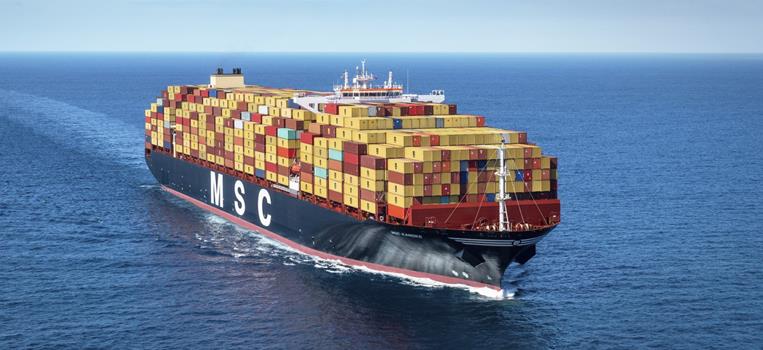Maersk: Update on Transpacific West Coast peak season for North American customers
Sep 21, 2020We continue to see strong demand and volumes in the Asia/North America Transpacific trade with imports into the US. The outlook for the remainder of Q4 remains uncertain but we will continue to strive to match our trade capacity in line with market demand.
Here’s a snapshot of the situation and the trends we are seeing:
Vessels
To respond to demand, we have reinstated the Transpacific Eastbound services that we had structurally blanked in Q2 (TP8 & TP11) due to decreased demand resulting from the global pandemic. For Golden Week holiday, we are planning fewer blank sailings than previous years. Since the start of the peak season period, we have closely managed/added capacity to accommodate our customers increasing demand levels.
Terminals
PNW : The strong, ongoing influx of import volumes has maximized terminal yard utilizations in container yards in Prince Rupert and Vancouver – and often exceeds landside infrastructure limits. Because of the ongoing port congestion, we opted to push vessel schedules by one week (instead of having the ships anchor for a week outside the ports). Keep in mind, common user port facilities inherently rely on every ocean carrier diligently moving imports off terminal quickly – and - getting empties loaded back on vessels returning to Asia to ensure healthy container yard performance and balance. The situation remains very prone to the slightest disruptions in volume, weather, vessel schedules and rail issues etc. Our marine leadership team is in constant contact with terminal operators to plan ahead and ensure terminal operations/schedule performance.
Southern California: APM Terminals Pier 400 Los Angeles terminal is working closely with the trucking community and closely collaborating with the Harbor Trucking Association to optimize truck flows at our terminal.
As you know, in the 2M Alliance in Los Angeles/Long Beach, we offer two terminals, APM Terminals Pier 400 Los Angeles and TTI in Long Beach, which is easier for truckers than other alliances (who have multiple terminals in the harbor).
Rail
PNW ports are heavily reliant on rail performance. Rail operators are keeping pace with car support into Prince Rupert and Vancouver/Centerm but are experiencing heavy volumes every week. Last week, CN had an agriculture train derail, resulting in a three day disruption on tracks which was felt in Vancouver rail movements. The derailment was fixed last Wednesday and normal track flows are resuming. Our rail leadership team is in constant contact with CN on a frequent, daily basis to ensure tight operations.
Los Angeles/Long Beach: At APM Terminals Pier 400 and TTI, rail operations are fluid and both terminals work well together on the rail product with BNSF and UP.
Other
Chassis shortages: A significant number of chassis are being used to store full import containers, resulting in increased dwell times. We highly recommend the return of empty containers – to free up chassis and improve operational velocity in terminals and storage yards.
Labor shortages: We are seeing a dip in labor availability with truckers, Warehouse & Distribution workers and Longshore Labor. This is the result of a combination of CDC guidelines in social distancing in warehouses, some truckers have parked their trucks and returned to their home country – and for our Longshore labor – we are seeing more casuals.
Empty containers: The equipment flow this year from Asia has been very one-sided with import flows the dominant player. To balance the flow – and restore containers to Asia asap - we are eager for export cargo and empty returns to ensure equipment availability in Asia.
As you can see, the peak season is being defined by a number of volume-related challenges and we encourage customers to add more buffer to supply chain schedules to allow for potential disruptions/delays.
Similar Stories

CMA CGM Announcement: ISPS Terminal - Croatia
View Article
MSC price and surcharge announcements
View Article
Hapag-Lloyd WDS/WID surcharge to the U.S. East Coast and Gulf ports
View Article
MSC schedule update – Trade Asia to USA West Coast
View Article
Stena RoRo takes delivery of the battery hybrid vessel Guillaume de Normandie
View Article
Indian Register of Shipping reflects on 2024 and sets ambitious goals for 2025
View ArticleGet the most up-to-date trending news!
SubscribeIndustry updates and weekly newsletter direct to your inbox!





